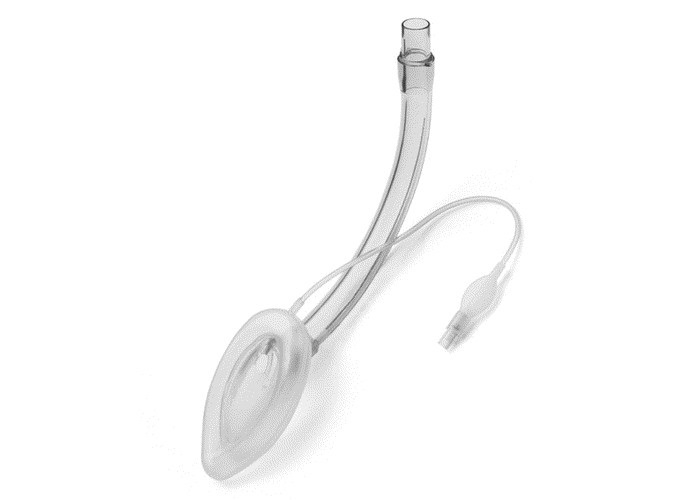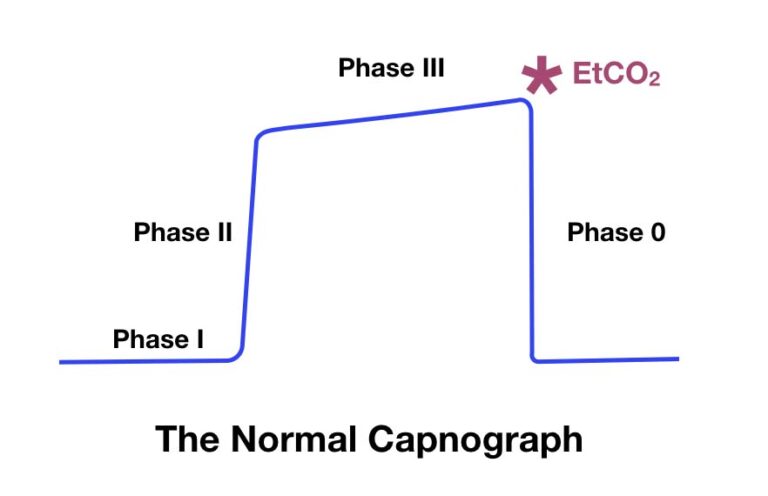ABGs that are collected in a plastic syringe must be analyzed within _________ of collection.
A. 10 min
B. 15 min
C. 30 min
D. 60 min
B. 15 min
According to clinical practice guidelines, suction catheters should occlude less than _____ of the ID of the ETT.
A. 1/4
B. 1/3
C. 1/2
D. 2/3
C: 1/2
What is the minimum level of PS that should always be set?
5 cmH2o
What is the normal value for EtCO2?
35-45 mmHg
What is the accuracy range for pulse oximeters when SpO2 is >80%?
±4%
CLIA guidelines state that blood gas analyzers must performed QC checks how often?
Minimum every 8 hours
Your patient has a mallampati score of 4. What is the first choice for intubation equipment?
A. Bronchoscope
B. Video laryngoscopy
C. Bougie
D. Percutaneous tracheostomy (Bedside perc trach)
B: Video laryngoscopy
Your patient is on CPAP 12 cmH2o and Fio2 50%. An ABG shows 7.39; PaCO2 39 mmHg; HCO3 24 mEq/L; PaO2 130 mmHg; and SaO2 100%.
What do you recommend?
A. Maintain settings and monitor patient
B. Decrease CPAP to 10 cmH2o
C. Decrease FiO2 to 50%
D. Trial off CPAP
B. Decrease CPAP to 10 cmH2o
The patient is on <60% FiO2 and oxygenating very well. The therapy (pressure) should be weaned.
Cuff pressure of ETTs should be maintained between (include units)
20-30 cmH2o
What adjunct AW is shown here?

Laryngeal mask airway (LMA)
How do you size an NPA for a patient?
Nares to earlobe
List 3 broad or specific indications for intubation
Apnea
Acute respiratory failure
Impending respiratory failure
Severe refractory hypoxemia
Airway protection
List 3 absolute contraindications for NIV.
Apnea
No gag reflex
Restraints
Hemoptysis
Untreated PTX
Nausea/vomiting
Calculate the correct size suction catheter for a 8.5 ETT.
size 14 french
(ETT-1)x 2
Odd number, always round down
How will heparin dilution affect the results of an ABG sample?
pH reads close to 7
List 3 causes of a right shift of the oxyhemoglobin dissociation curve
Hyperthermia, high levels of 2,3 dpg, & acidosis (or high CO2)
You're assessing your intubated female patient for a leak. The tube is a size 7.5 and is 22 cm at the teeth. The leak is persistent even with the pilot balloon clamped.
Given the information here, what is the MOST likely cause of the leak?
A. Tube is too small
B. Tube is dislodged
C. The cuff is blown
D. The one-way valve on the pilot balloon is faulty
C. The cuff is blown
Calculate 6-8 mL/kg IBW for a 6'2" male patient
516 - 688 mL
List the 4 types of VILI
Volutrauma
Barotrauma
Atelectrauma
Oxygen-induced toxicity
Draw a capnogram. Label the 3 phases and where the EtCO2 measurement is taken.

What are the two types of trachs used for weaning in adult patients?
Fenestrated and cuffless
Your patient is on BiPAP 16/6 cmH2o, FiO2 60%, RR 14 bpm, Itime 1 sec.
An abg reveals pH 7.29, PaCO2 88 mmHg, HCO3 41 mEq/L, PaO2 50 mmHg, SaO2 85%.
What vent change(s) do you recommend?
Increase FiO2 by at least 10%
Increase EPAP by 2-3 (8-9 cmH20)
Increase IPAP 2-3 MORE than EPAP change (20-22 cmH2o)
You just set your patient up on EtCO2. It reads 32 mmHg. You obtain an ABG for trending. Their ABG: pH 7.34; PaCO2 68 mmHg; HCO3 36 mEq/L; PaO2 65 mmHg; SaO2 92%.
What is their deadspace? AND identify if it is normal or increased.
53% or 0.53
Increased
How will a blown cuff affect the EtCO2 reading of an intubated patient?
A. Increase EtCO2
B. Decrease EtCO2
C. No effect on EtCO2
B. Decrease EtCO2